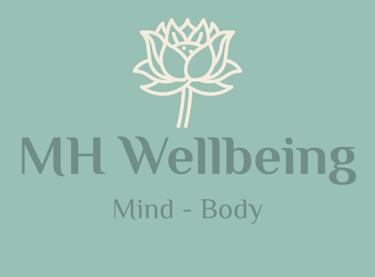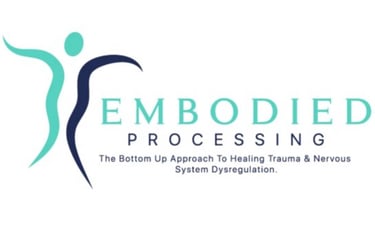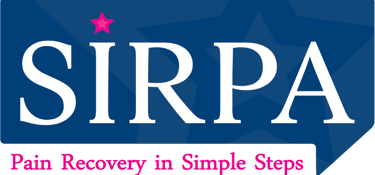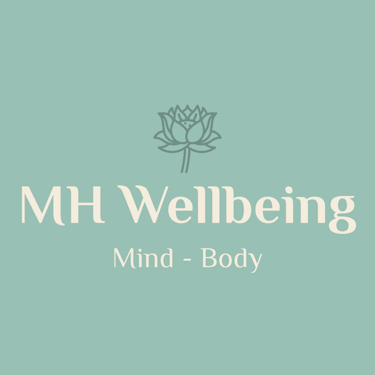

Six Effective Tips for Beating Anxiety
Anxiety can have a seriously impairing effect on your life, but it really doesn't have to. Learn to tools to break free and get your freedom and peace of mind back.
ANXIETY
Maria Hancock
9/27/20245 min read
Understanding Anxiety
Anxiety, (including phobias and panic) is probably the most common issue I have helped people with over the years. We have probably all experienced this emotion at one time and it is in fact normal to experience it sometimes. I have experienced my own battles with anxiety in the past. However, anxiety does not need to prevent us from living the life we choose. Whether you've been battling it for years or months, there is a way to break free from paralyzing anxiety and start to live again.
Anxiety vs Fear
Firstly, let me explain the difference between fear and anxiety. Fear is an immediate response to an external, identifiable threat, typically short-lived and subsides when the threat is removed. You would experience fear if a car swerved towards your direction. Anxiety on the other hand is a more diffuse, prolonged feeling, often related to potential or perceived threats. It can often be about future events or uncertainties, e.g., worrying about the presentation you have to do next month.
Anxiety vs Alarm
I also find it useful to separate out anxiety into thoughts (anxiety) and feelings (alarm). In Dr Russel Kennedy's book ("Anxiety Rx: A New Prescription for Anxiety Relief"), he explains how anxiety is really the anxious thoughts we have and feelings in our body are the alarm. Once we separate the two out, we can then learn to understand what is going on and interupt the cycle to create change.
I find this distinction crucial, as we can learn to stop getting pulled into the images and thoughts that revolve in our brains and by turning towards the alarm sensations in our body with our total focus, we keep out of our thoughts which escalate our bodily sensations if we get sucked in. By putting our focus on our sensation, we can learn to 'surf the waves' of our sensations and if we can fully allow the sensations to be there, we can fully process the sensation/emotion and it will dissappear and in doing so, it loses the control over us. If we allow it and stop putting our energy into fighting it, we learn that we are stronger than the sensation and it can actually dissappear in just a few minutes if we fully embrace it.
The Flight, Fright or Freeze response
Our body and mind are inextricably linked. Our sensations affect our mind and vise versa. However, the body has a much greater affect upon our mind than our brain has to our body. For example, can you imagine being able to bring yourself to a calm state whilst about to do a 200ft bungee jump? We could tell ourselves calming thoughts, but this would have little affect upon our trembling knees, increased heart rate and general feelings of panic!
This alarm sensations in our body sends a message to the brain which alerts our fight, flight or freeze response. When the brain perceives a threat, it activates the hypothalamus, which triggers the sympathetic nervous system and the release of stress hormones like adrenaline and cortisol. These changes prepare the body for immediate action, eg. increased heart rate, rapid breathing, decreased digestion, dilation of blood vessels.
6 Tips for overcoming anxiety
Accept that you cannot control our anxiety thoughts! We have millions of thoughts per day and in fact most of them are in fact negative. We can't choose which thoughts we want to have because they are automatic. So we need to see that we are normal for having negative thoughts. Further, thoughts do not have the power to harm us. It is only by believing our thoughts that they have the power to make us feel a certain way.
Notice Your Negative Thoughts but don't engage with them!: Anxiety is often fueled by negative thoughts and beliefs. If we try to push these thoughts away or argue with them, they can often become worse. Let them float on by like watching the clouds drift by. Sometimes it can help to write down your thoughts and then write down what is more likely to happen.
Tune into sensations. To help us to avoid the trap of arguing or battling with our thoughts, it can be helpful to turn towards our feeling of alarm in the body. This is a Mindfulness technique and must be done in a way to accept the feeling, rather than try to force it away. Anxiety sensations can be unpleasant, but we can learn that they will not harm us. Nothing is permanent: no sensation, no thought; and we just need to allow our alarm sensations (and anxiety thoughts) time to pass. Try noticing exactly where the sensations are and ask yourself – has it got a colour? Is it moving or pulsing? Is it hard or soft? Warm or hot and so on?
Stand like Wonder Woman! Your body sends powerful signals to the brain, which affect how we feel, so make use of it. Standing in a powerful pose for 2 minutes has been proven to increase confidence and reduce cortisol, our stress hormone. Try standing with your feet about shoulder-width apart, with your hands on your hips (or raised), push your chest out slightly and pull your shoulders back to create an open, expansive posture. Keep your head level, chin slightly up, and eyes looking forward. The Wonder Woman stance is a simple yet powerful tool for boosting confidence and reducing anxiety.
Exercise: Studies indicate that regular exercise can reduce symptoms of anxiety as effectively as medication for some. Exercise stimulates the production of endorphins, often called "feel-good" hormones, which promote feelings of well-being; it enhances the levels of neurotransmitters such as serotonin and dopamine, which are linked to mood regulation and anxiety reduction; and it helps lower cortisol levels, a stress hormone that is often elevated in those with anxiety. Whether through aerobic activities, strength training, or mind-body practices, regular physical activity can significantly improve mental health and provide a practical tool for reducing anxiety.
Practice 7-11 breathing: Breathing is a powerful tool for managing anxiety. Take a few minutes multiple times each day to practice deep breathing and focus on the present moment. This can help to calm your mind and reduce feelings of anxiety. Here's how:
Breath in for the count of 7 and out for the count of 11. Breath into your tummy or diaphragm (below your chest). It doesn't need to be exactly 7 and 11 - the important thing is that the out breath must be longer that the in breath. This causes stimulation of the part of your nervous system responsible for relaxation. This is a basic law of biology and if you breathe in this way then your body will have no choice but to relax.
It may take a few minutes but the body will respond. It may be a little difficult at first, but doing this regularly causes your general anxiety level to come down. Regular relaxation actually starts to inhibit the production of stress hormones in the body so it actually becomes harder and harder to panic.
Ultimately, breaking free from anxiety is a process that takes time and effort. Be patient with yourself and celebrate your progress along the way. With the right mindset and strategies, you can overcome paralyzing anxiety and live a fulfilling life.
Seek Professional Help if your anxiety is severe or if you are struggling to manage it on your own. Why not contact me regarding booking in a session or a free 15 minute phone consultation to see how I can help?
Further reading - The Happiness Trap: Stop Struggling, Start Living by Dr. Russ Harris; Dr Russel Kennedy's: Anxiety Rx: A New Prescription for Anxiety Relief.

MH Wellbeing, Maria Hancock MSc GQHP
Trauma-Informed Somatic Therapist, Hypnotherapist, Mindfulness Teacher, SIRPA Pain Recovery Practitioner
Specialist in stress, anxiety, chronic pain and other mind-body symptoms.
Local areas: Horley, Reigate, Redhill in Surrey and Crawley, Horsham, Copthorne in West Sussex. English Speaking Online Therapy.






